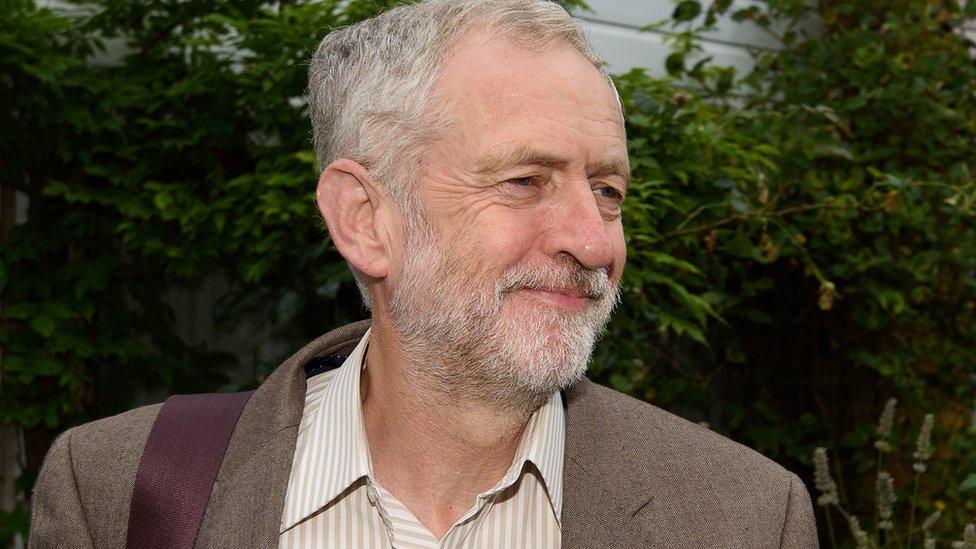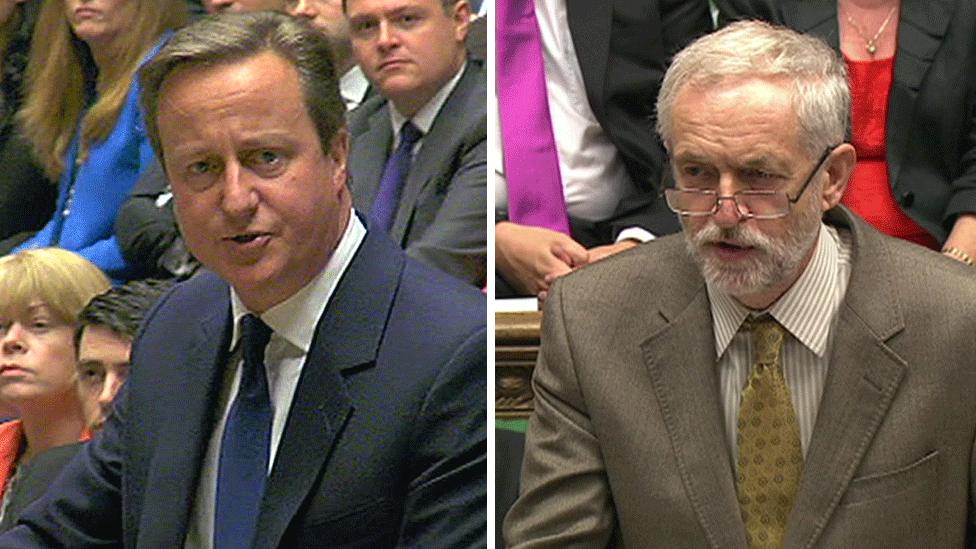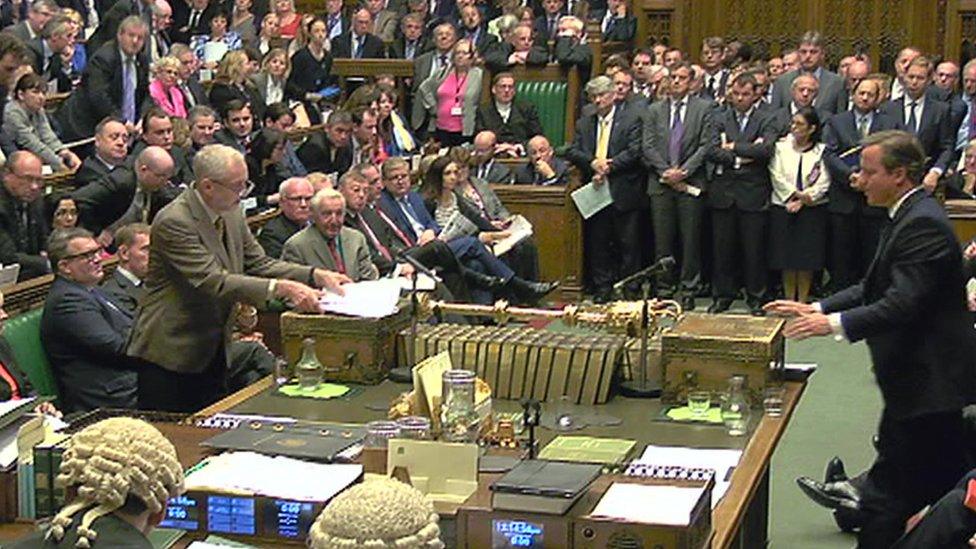Jeremy Corbyn sets out Labour's EU stance
- Published

Jeremy Corbyn has set out Labour's position on the EU, saying he wants the UK to remain a member but would try to reverse any "damaging changes" negotiated by David Cameron.
He criticised the EU over free trade, agriculture and Greece but backed its financial transactions tax that the Conservative government has opposed.
Mr Corbyn was under growing pressure from MPs to clarify his position.
It comes after he told the BBC his EU policy was "developing".
In other developments:
Liberal Democrat leader Tim Farron claimed he had received "unsolicited texts" from well-known Labour figures "distressed" about the direction the party was taking
Labour donor Assem Allam told The Times he would support Labour MPs who want to break away from the party
Mr Corbyn appointed former union communications officer Kevin Slocombe as his press spokesman
Since being elected on Saturday, Mr Corbyn's position on the EU has come under increased scrutiny.
During the campaign he said he had "mixed feelings" on the union and suggested there were circumstances in which he would advocate a vote to leave.
He has also insisted Mr Cameron should not be given a "blank cheque" in negotiations about the UK's EU membership ahead of a future in-out referendum.
'Damaging changes'
Shadow justice secretary Lord Falconer said he would quit if Mr Corbyn called for a UK exit.
On Thursday, Mr Corbyn, who told the BBC that Labour would not campaign to leave, wrote to the party's MPs confirming that it would be campaigning to stay in.
This led shadow Europe minister Pat McFadden to agree to stay in his role.
Mr Corbyn set out his policy in a Financial Times article, warning Mr Cameron against trying to "weaken workers' rights" as part of his renegotiations.
"Our shadow cabinet is also clear that the answer to any damaging changes that Mr Cameron brings back from his renegotiation is not to leave the EU but to pledge to reverse those changes with a Labour government elected in 2020," he said.
He criticised the planned trade deal with the United States, called the Transatlantic Trade and Investment Partnership, and said many people were "appalled" at the EU's treatment of Greece.
And he said he would work with other EU nations to bring in a financial transactions tax, which is the subject of a legal challenge from the UK government over fears it would damage the City of London.
"Labour is clear that we should remain in the EU. But we too want to see reform," he wrote in the Financial Times.
He added: "If Mr Cameron fails to deliver a good package or one that reduces the social gains we have previously won in Europe, he needs to understand that Labour will renegotiate to restore our rights and promote a socially progressive Europe."
- Published16 September 2015

- Published16 September 2015

- Published16 September 2015